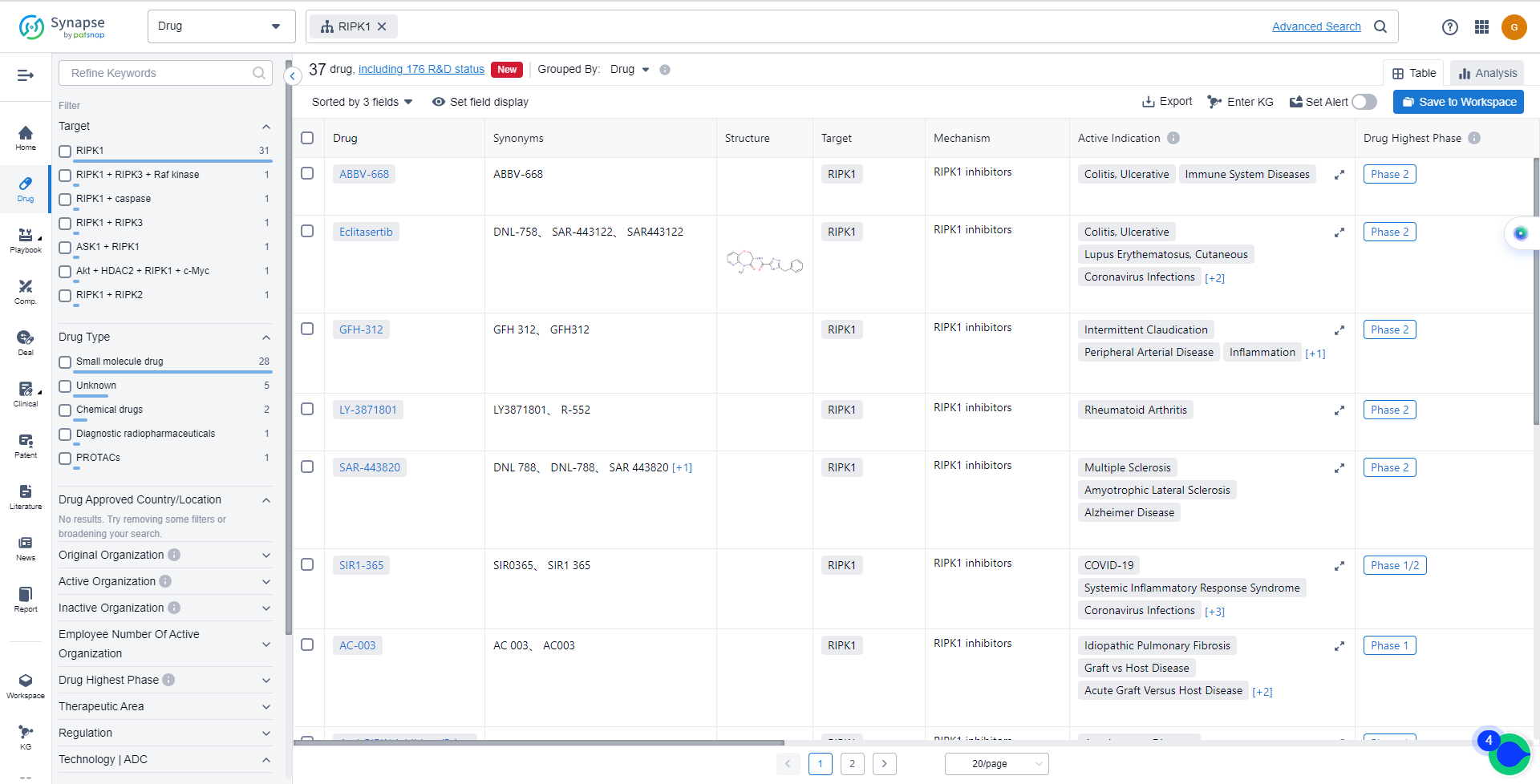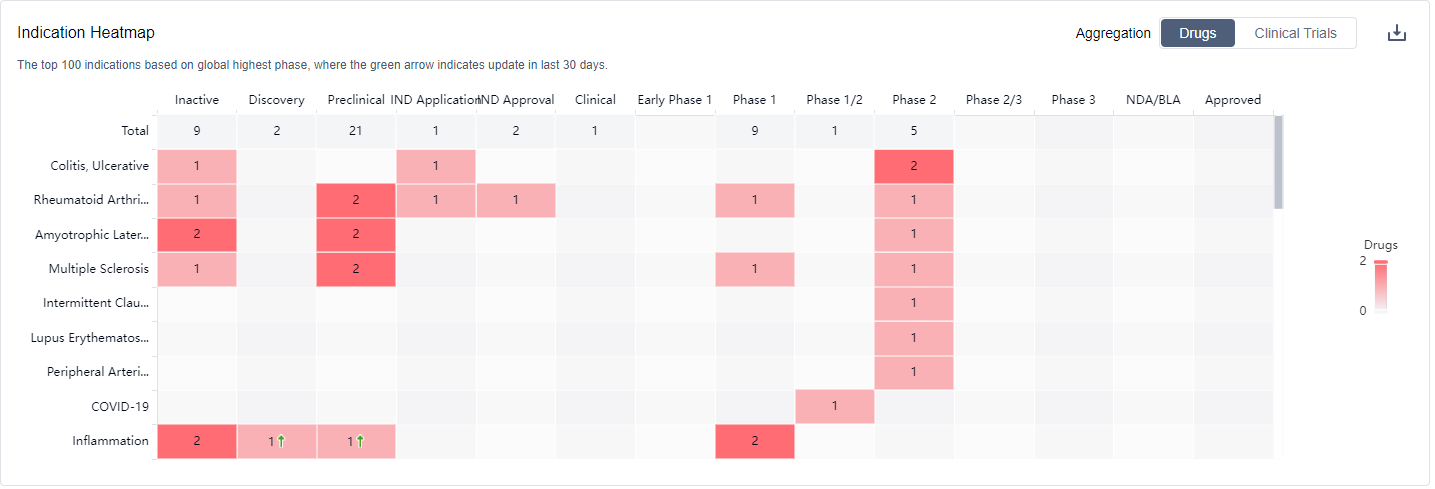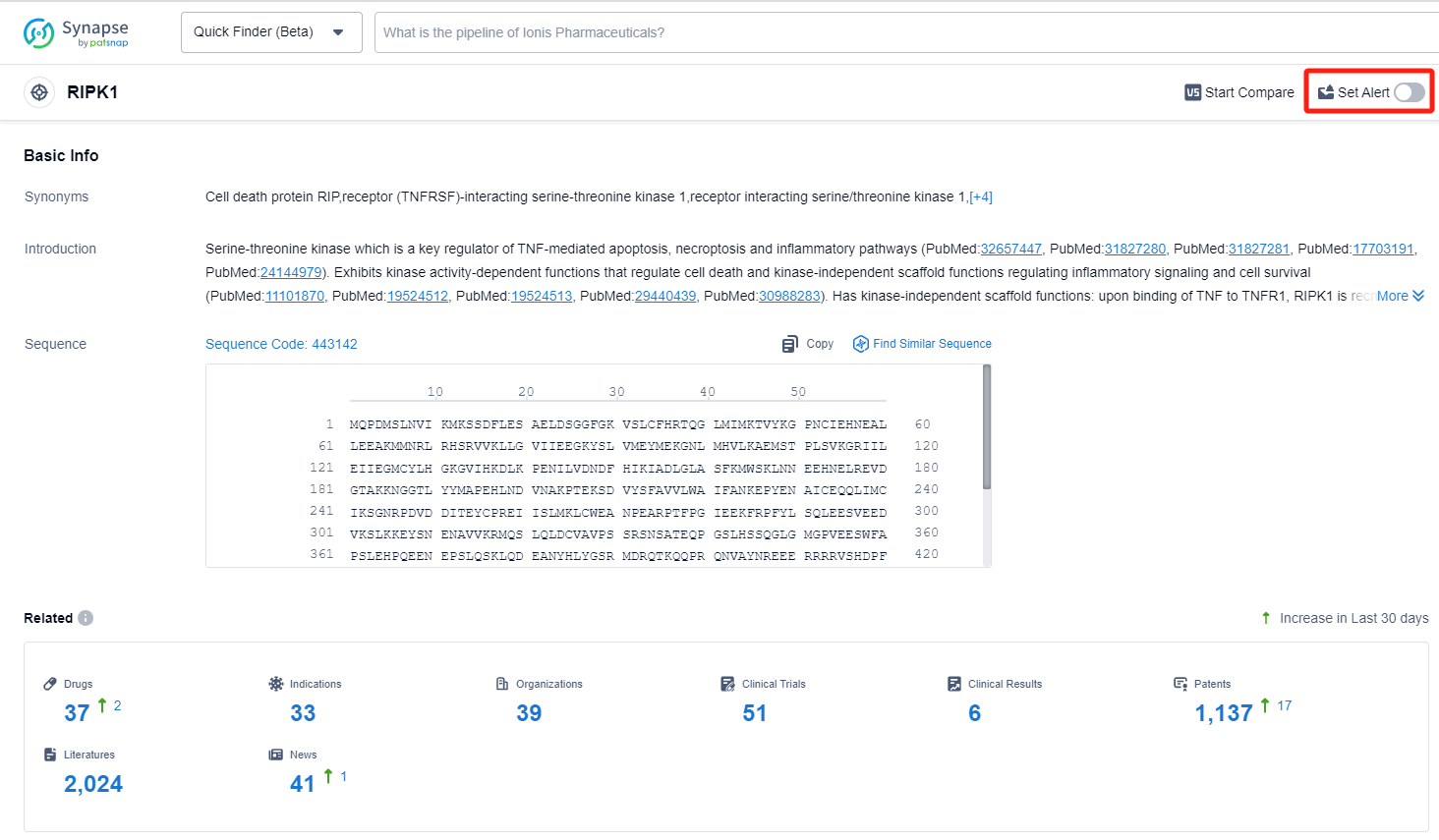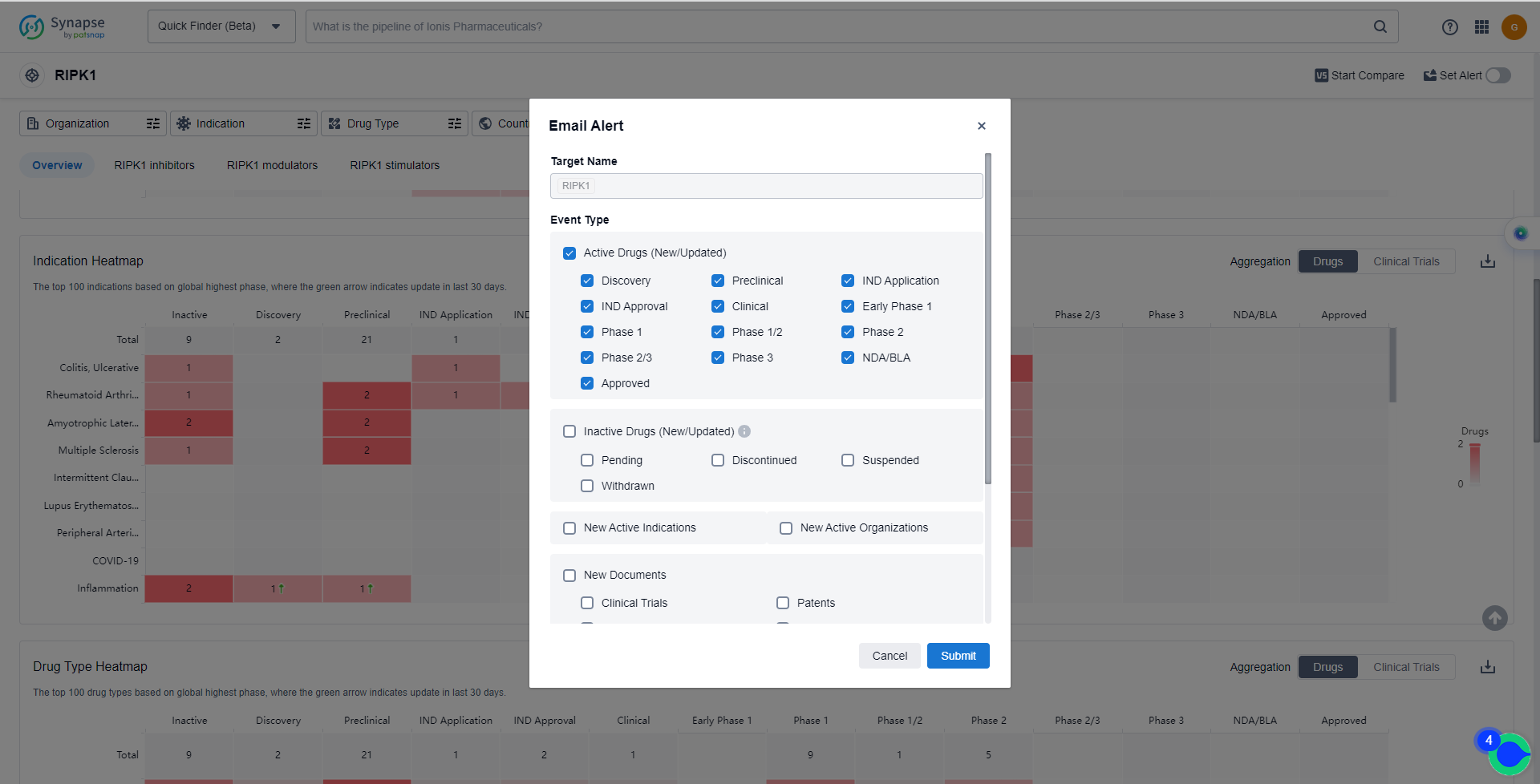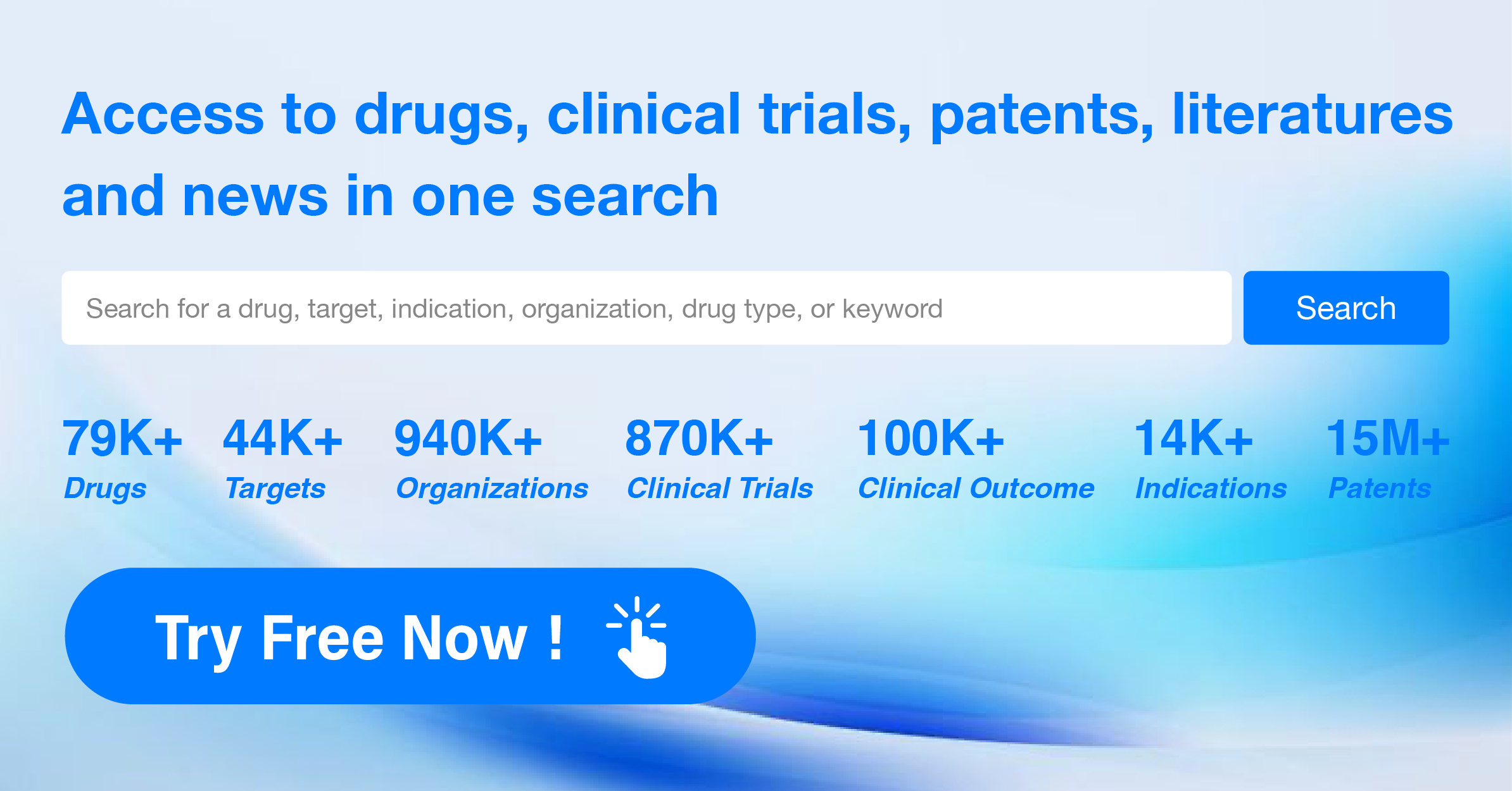Understanding RIPK1 Inhibitors and Methods to Keep Abreast of Their Recent Developments
RIPK1, or Receptor-Interacting Protein Kinase 1, plays a crucial role in regulating cell survival and death pathways in the human body. It is a key mediator of inflammation and cell death signaling, particularly in response to various stressors such as infection, tissue damage, or disease. RIPK1 acts as a signaling hub, integrating multiple cellular pathways to determine cell fate. It can promote either cell survival or programmed cell death, depending on the context and cellular environment. Dysregulation of RIPK1 has been implicated in various diseases, including inflammatory disorders, neurodegenerative diseases, and cancer, making it an important target for therapeutic interventions in the pharmaceutical industry.
RIPK1, the first member of the RIP family, is a multi-domain protein, including an N-terminal kinase domain, an intermediate domain, and a C-terminal death domain (DD). Since its discovery, it has become a hot topic in the field of cell signal transduction. In fact, RIPK1 plays a switching role in both apoptosis and necroptosis pathways. Moreover, due to its important regulatory role in the inflammation response, apoptosis, and necroptosis signaling pathways, and because the kinase structure of RIPK1 is very suitable for the development of specific pharmacological small molecule inhibitors, RIPK1 has now become an important drug target in the pharmaceutical industry.
Based on the analysis of the data, the current competitive landscape of target RIPK1 shows that Sanofi is the leading company in terms of R&D progress, with drugs in multiple stages of development. The indication analysis reveals that drugs targeting RIPK1 have been approved for various indications, indicating their potential therapeutic value in multiple disease areas. Small molecule drugs are progressing rapidly under the current targets, suggesting intense competition in the development of innovative drugs. China has shown progress in the development of drugs targeting RIPK1, with several drugs in advanced stages of development. Overall, the target RIPK1 presents a promising opportunity for pharmaceutical companies and researchers, with potential applications in various indications and drug types.
How do they work?
RIPK1 inhibitors are a type of drugs that specifically target and inhibit the activity of receptor-interacting protein kinase 1 (RIPK1). RIPK1 is an enzyme that plays a crucial role in regulating cell death and inflammation. By inhibiting RIPK1, these inhibitors can modulate the signaling pathways involved in cell death and inflammation.
From a biomedical perspective, RIPK1 inhibitors have gained significant attention in the field of biomedicine due to their potential therapeutic applications. Dysregulation of RIPK1 activity has been implicated in various diseases, including inflammatory disorders, neurodegenerative diseases, and cancer. Therefore, RIPK1 inhibitors hold promise as potential treatments for these conditions.
The inhibition of RIPK1 can prevent the activation of cell death pathways, such as apoptosis and necroptosis, which are associated with tissue damage and inflammation. By blocking RIPK1 activity, these inhibitors can potentially reduce inflammation and protect cells from undergoing programmed cell death.
Furthermore, RIPK1 inhibitors have been studied for their potential role in modulating immune responses. By targeting RIPK1, these inhibitors can influence the activation and function of immune cells, such as macrophages and T cells, which play crucial roles in the immune system's response to infections and diseases.
Overall, RIPK1 inhibitors represent a promising class of drugs that have the potential to modulate cell death and inflammation pathways, offering new therapeutic opportunities for various diseases.
List of RIPK1 Inhibitors
The currently marketed RIPK1 inhibitors include:
For more information, please click on the image below.
What are RIPK1 inhibitors used for?
The potential applications of RIPK1 inhibitors are quite extensive, including neurodegenerative diseases such as multiple sclerosis, ALS, Alzheimer’s disease, autoimmune diseases such as lupus, cancers such as pancreatic tumors, and even within the scope of COVID-19. For more information, please click on the image below to log in and search.
How to obtain the latest development progress of RIPK1 inhibitors?
In the Synapse database, you can keep abreast of the latest research and development advances of RIPK1 inhibitors anywhere and anytime, daily or weekly, through the "Set Alert" function. Click on the image below to embark on a brand new journey of drug discovery!
